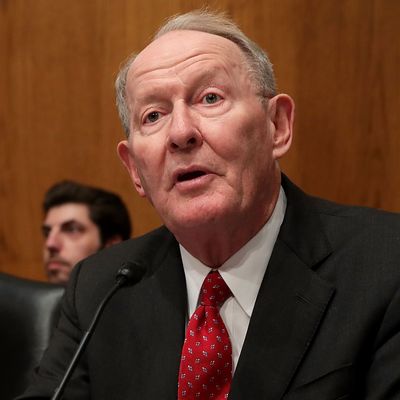
Republicans who share the president’s desire to “let Obamacare implode,” or perhaps give the health-care initiative a good strong push toward failure, seem to be getting their wish. Right now, 2018 premiums for individual health policies under Obamacare are being decided by insurance companies without any certainty about one of the basic elements of the program: reimbursements to offset “cost sharing reductions” they are required to make to keep low-income consumers from bearing the brunt of high co-payments and deductibles. These reimbursements are currently stuck in limbo, as Trump refuses to promise to keep making them and bipartisan Senate negotiations to take the decision out of the president’s hands and authorize them legislatively crawl toward an uncertain conclusion.
On the premium front, the early signs for 2018 are alarming. Those obtaining individual insurance via Obamacare in Florida are looking at an average premium hike of 45 percent. In neighboring Georgia, the state has approved increases of more than 50 percent based on the assumption that insurers cannot rely on getting those CSR reimbursements. Utah’s looking at a 39 percent average increase in premiums, with uncertainty over CSR again being a big factor. As Alice Ollstein reports, it’s probably too late to do anything to influence premiums in the individual market for 2018:
This week, health insurance plans across the country submitted their final rates for 2018, many requesting massive double-digit rate hikes and explicitly citing uncertainty around Congress and the president’s plans for the individual market.
The impact of uncertainty on insurers was a big reason for the bipartisan talks begun by the chairman, GOP seantor Lamar Alexander, and ranking Democrat senator Patty Murray of the Health, Education, Labor and Pensions Committee shortly after Obamacare repeal-and-replace legislation was defeated in the Senate in July. Alexander and Murray were working on a deal that would have continued CSR payments for at least a year in exchange for more flexibility for states in securing waivers from Obamacare provisions. They were reportedly making progress until GOP congressional leaders told Alexander to hold off while Republicans tried again to kill Obamacare via the Graham-Cassidy legislation that briefly looked viable in mid-September. When that initiative cratered, too, Alexander and Murray tried to renew negotiations, but at this point it looks like too little and too late. The problem is less a matter of disagreement between Alexander and Murray, and more about the lack of interest in Obamacare stabilization in the GOP congressional leadership and the ranks of Republicans generally.
Republican lawmakers told TPM that the issue did not even come up during a lunch meeting on Tuesday, and Sen. John Thune (R-SD), a member of the GOP leadership team, was noncommittal when he emerged.
And that’s in the Senate. You can imagine how strong the resistance to “saving Obamacare” might be in the House with its rampant hard-core conservatives. So the odds are very high that uncertainty over CSR payments and other aspects of Obamacare policy will be cooked into 2018 premiums. Many policyholders will qualify for tax credits to help them pay higher premiums (at least so long as the Affordable Care Act is still in place), but that will greatly boost the federal government’s costs, and those whose incomes are too high to qualify for tax credits will just be out of luck.
Perhaps publicity about skyrocketing premiums and the realization that they will be blamed for whatever happens will provide some incentive to Republicans to get behind Obamacare stabilization talks. But by then, for all we know, there could be a fresh round of interest in legislation to repeal and replace Obamacare, which will again short-circuit any bipartisan discussions, just as it did in September. It’s amazing the damage this Republican Congress and administration can wreak while basically doing nothing.






























